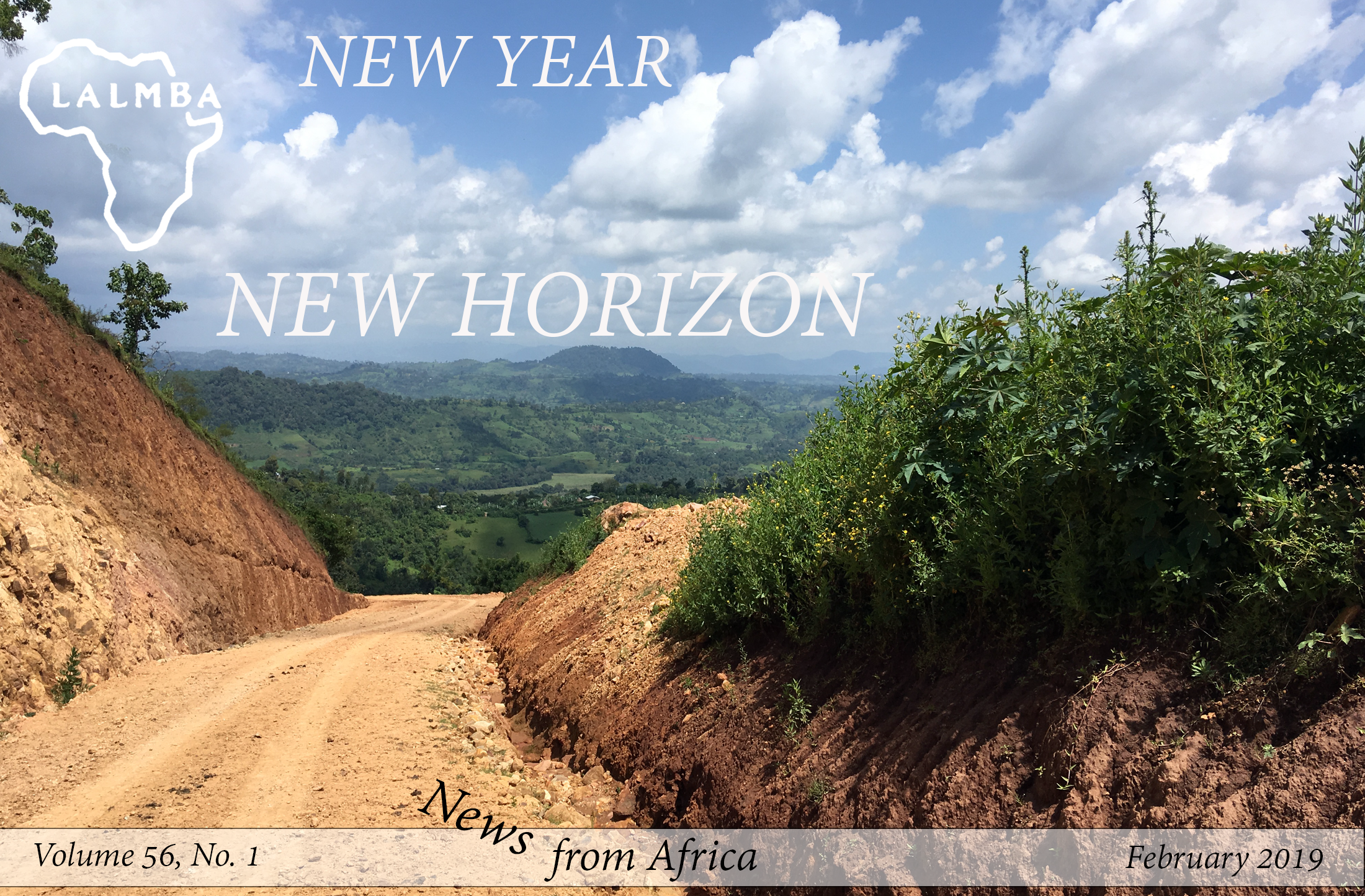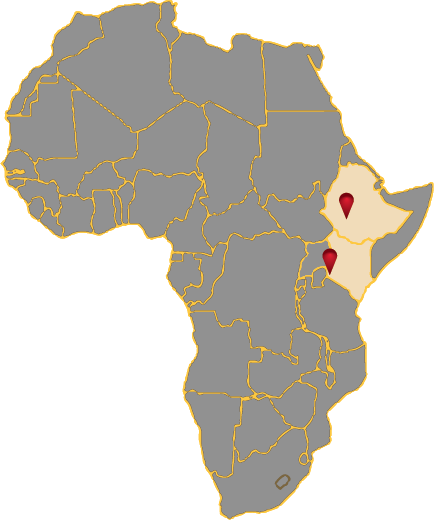“It was one of those days where you get the bureaucratic run-around and then walk out to find your tires flat and your jack doesn’t want to work. But it beats working in an office.”
From the “desk” of Jared Lollar
Lalmba Project Director, Agaro Bushi Medium Clinic
The site of our new clinic project, Agaro Bushi, is a small village, hidden away in the highlands of Kaffa. It is truly an impressive piece of countryside, the birth place of coffee, green and temperate all year-round. We serve a rural population, many of whom grow encet and coffee in the forests around us or work bucolic farmland with plows pulled by oxen. In some ways, the source of this beauty, Agaro Bushi’s isolation in the mountains, is also the source of many of the challenges we face.
The road to Agaro Bushi is treacherous and steep, about a five hour walk to the next town, Chiri, where people can find regular transportation to bigger cities. The closest hospital is about two hours away in our ambulance. I sometimes wonder how pregnant mothers and emergency cases managed before we began offering the ambulance service. The immediate population of Agaro Bushi is almost five thousand people but, it is not uncommon for many of our patients to have walked several hours to reach us. Many of these patients cannot afford even the nominal fees we charge, about $0.20, and receive free service. Almost all the children who come through our gate are stunted, underweight or malnourished.
It’s paradoxical, that such a verdant area is home to such poverty, but isolation and a lack of basic infrastructure have conspired against the population.
In the last few months we’ve made tremendous progress, increasing our patient flow by almost ten times what it had been in the fall. This reflects the presence of more medications in the clinic and the work we’ve done to increase the level of our service. We are building a program now that seeks to empower our local staff and work with the community to find sustainable solutions to the public health challenges that face Agaro Bushi.
At times it is overwhelming to think of the work that still must be done and the level of need present in the community. The level of services we provide is still very basic. But, every day we chip away a little more at the challenges. In Amharic they have a saying for this, kes be kes inkulal be egur yehedal, which means “step by step, an egg begins to walk.” The community in Agaro Bushi is thankful for Lalmba, our staff here is thankful, and I want to personally say, thank you for everything.
As our clients in Agaro Bushi tell us, Yeremba. (Thank you)
Jared Lollar is from Spokane, Washington. Prior to volunteering with Lalmba, Jared spent 3 years as a Peace Corps volunteer in Ethiopia. He has a special relationship with the people of Ethiopia and is passionate about building sustainable programs that bring about empowerment. He is the perfect person to help Lalmba build a program from the ground up, and we are grateful to work with him.
YOUR CHARITY IS GREATLY APPRECIATED
We are overwhelmed by the generosity of you, our supporters, for coming through to help us raise the funds to build a brand new clinic in Ethiopia. We have nearly reached our goal of $340,000 to begin construction. Our project director in Ethiopia, Jared Lollar, is busy now meeting with architects and contractors in order to finalize plans, and we hope to break ground on clinic construction within the next 3 months.
Of course, when you are building a new project, it doesn’t mean your ongoing projects can be neglected. We continue to use revenue to run the life-saving programs we always have. We are hopeful that with your charity this quarter, we can close the gap in our operational budget before the end of our fiscal year on March 31.
As John Bunyan said, “You have not lived today until you have done something for someone who can never repay you.” We know how well you, our supporters, understand that philosophy, and we thank you!
My first day in Kenya was like walking into a National Geographic Documentary. A driver was waiting for me outside the airport with a handwritten sign with my name incorrectly spelled, so I found that funny. The adventure had just begun!
I couldn’t stop marveling at the brightly dressed women, the lean graceful men, the purple-blossomed jacaranda trees and the buses belching black smoke. By the end of a couple days I knew how to eat the staple food, a maize flour called ugali, cooked with water until it is thick enough to be eaten with the fingers. I knew to accept it from even the poorest of women, because they need to feel they have something to offer in exchange for the health services that I bring for them.
I also knew that buying food for a starving woman may save her life that day, but it does not solve her problems in the long run. I knew that, despite the disease and theft and uncertainty, despite the absurdity of leaving my comfortable life in Bogota behind, my place was here. I knew I was going to help to heal wounds, to treat malaria, to treat patients with HIV/AIDS, to treat malnourished children … but most importantly, I knew I was going to heal and relieve disconsolate souls, and because of that, I knew I was going to stay.
Once in Matoso Village, my job started with learning, not teaching. I learned about the area, the Luo people, and most importantly, about the staff who work at our clinic. I learned from them so I can in turn teach and give training. Since I have surgery training, I started to perform some minor surgeries, from draining abscesses and debriding wounds to removing cysts and lipomas.
Lalmba’s satellite clinic, the Ochuna Dispensary, is situated very near to the Kenya-Tanzania border. An estimated 80-90% of patients come from Tanzania. Most of the patients at Ochuna Dispensary are children, and these clients tend to be much poorer than those surrounding our main clinic in Matoso.
Every Tuesday the Ochuna clinic runs a program called Chakula Bora (Good Food). It is a nutrition education and feeding program for underweight babies and infants. The program monitors the child’s nutritional status on a weekly basis. We provide supplemental foods to children who qualify, and we provide financial assistance to help the mothers with a regular supply of milk for their family (we pay the milk providers directly). Most children recover and graduate from the program within 2 months’ time. If the child does not improve or their health status worsens, we do home visitations to find other solutions to the problem or we may refer the child to other facilities for treatment.
Every day in my new Kenyan life there is a new challenge to achieve, and a dream to follow.









